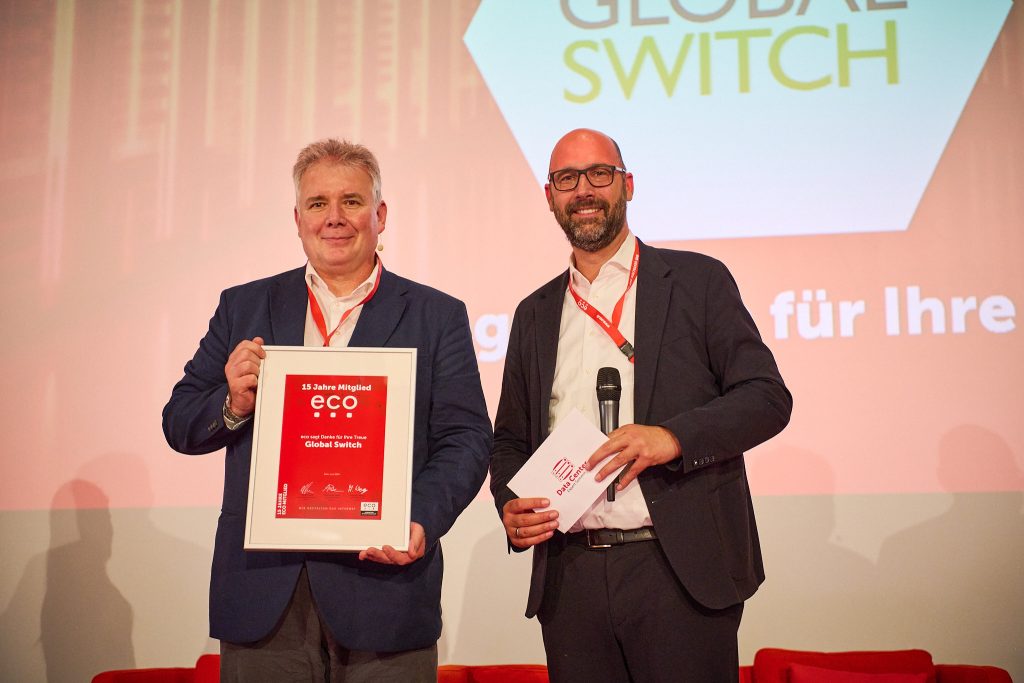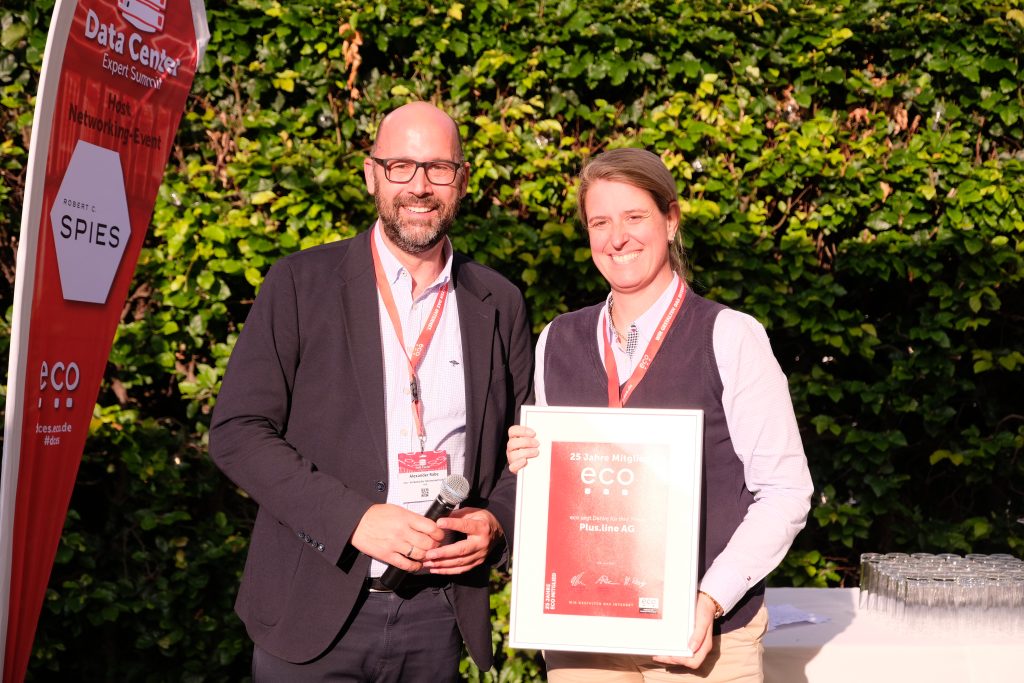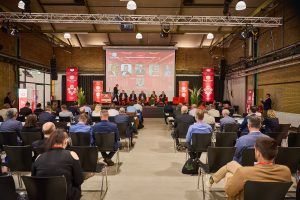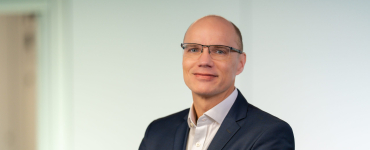The sounds of files, cutters and hammers once echoed around the Old Locksmith in Offenbach am Main. In early June 2024, however, the Data Centre Expert Summit 2024 was all about data centres as tools for our digital future – with the support of our sponsors ABB, EkkoSense AI, GOLDBECK, Robert C. Spies, Huawei and Global Switch.
The bell that used to signal the start of the shift in the Old Locksmith on the grounds of Energieversorgung (energy supply) Offenbach now announced the start of the event to the approximately 140 participants at the Data Centre Expert Summit. As in previous years, decision-makers, operators, planners and users from data centre and server room operations came together to talk about prospects for the industry. “Without data centres there is no data, without data there is no digitalisation,” emphasised Dr Walter Fischedick from the Hessian Ministry for Digitalisation and Innovation in his opening speech. To illustrate the importance of data centres, he suggested imagining a day without them.
To prevent such a scenario, the industry works diligently to meet the demand for digital infrastructures and computing capacities today and in the future. Digitalisation and artificial intelligence mean that data volumes are growing rapidly, and it is not yet clear where the power will come from to meet all future demands. “We are still a good location, but remaining so is no easy challenge,” said Fischedick. “The framework conditions must also be right for this,” said Alexander Rabe, Managing Director of the eco Association, in his opening speech. He gave an overview of how eco represents the industry in Brussels and Berlin. Alongside him, Dr Béla Waldhauser, Spokesperson for the Alliance for the Strengthening of Digital Infrastructures in Germany, welcomed the guests and highlighted current challenges such as the Energy Efficiency Act and the resulting reporting obligations.
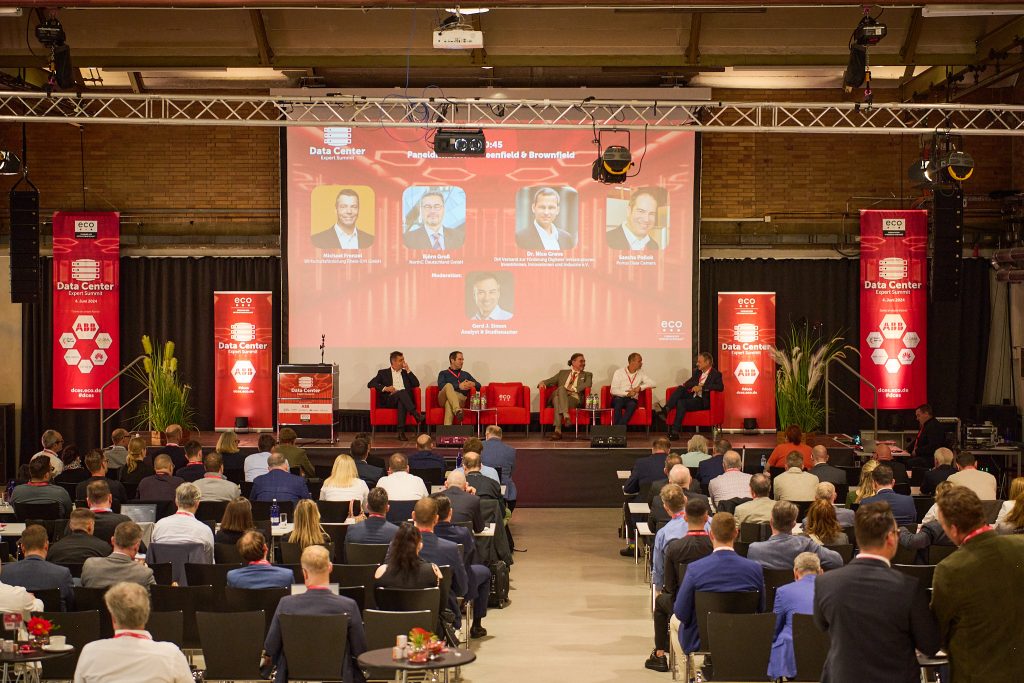
Improving the energy efficiency and resilience of data centres
Adalbert Neumann, CEO of ABB Stotz-Kontakt GmbH and Busch-Jaeger Elektro GmbH, discussed the disruptions caused by Industry 4.0 and AI, and the resulting challenges for data centres. Data volumes are growing, and it is not yet clear where the electricity will come from to fulfil all future requirements. “We need to do more to further improve the energy efficiency and resilience of data centres,” he said, presenting solutions for secure energy distribution and energy management solutions for data centres. “ABB is contributing to this with intelligent solutions that also save CO2.”
“In addition to electrical connectivity, the ability to utilise waste heat is also important today. This is the field we are moving in,” says Björn Gross from NorthC Deutschland GmbH in the panel discussion on Greenfield & Brownfield. Good conditions in terms of electricity and waste heat utilisation would also justify increased property prices in some cases.
Michael Frenzel from Wirtschaftsförderung Rhein-Erft GmbH reported on Microsoft’s greenfield project in the Rhein-Erft district. In this regard, the locational advantages of one of the densest power grids in Germany and many energy-intensive industries were successfully used as arguments in favour of the location. A project with model character is emerging. If there is not enough electricity available, then self-production of electricity becomes more important, said moderator Gerd Simon. The participants had been able to see an example of this the day before: A bus tour showed the energy plant of Energieversorgung (energy supply) Offenbach, which generates electricity with the help of waste incineration.
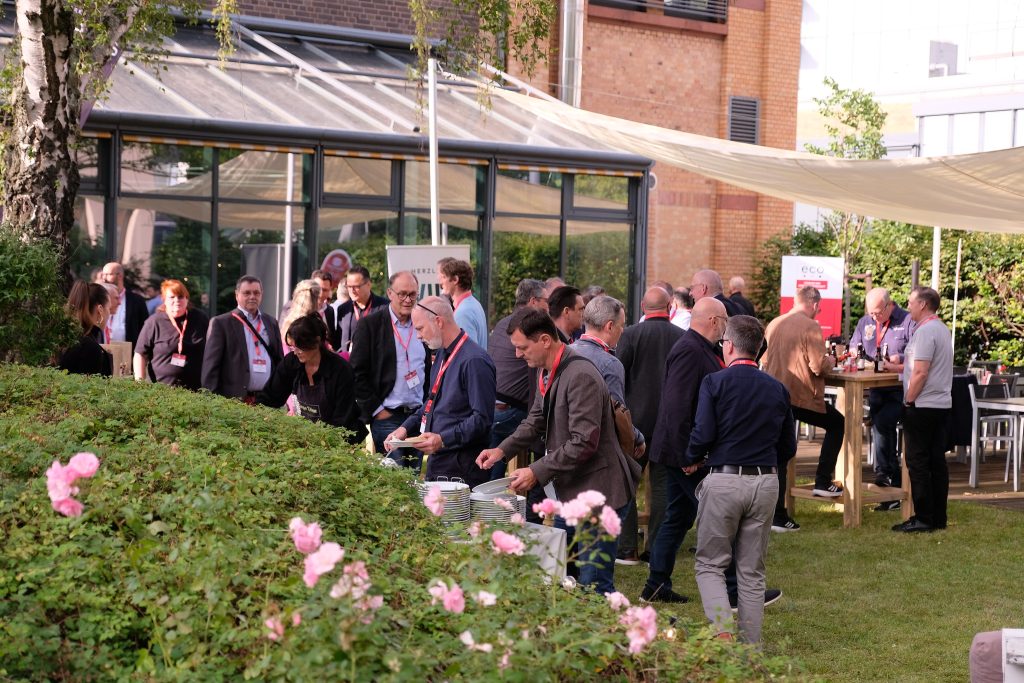
Overcoming data centre challenges with artificial intelligence
Daniel Schmitz from Goldbeck provided tips on planning and building sustainable, scalable data centres. The construction technology company specialises in district development with options for waste heat utilisation. After the coffee break, Christiane Ulriksen from Norsk Datasenter Industri spoke about the Norwegian path to achieving greater sustainability for data centres.
The Corporate Sustainability Reporting Directive (CSRD) adopted by the EU Parliament at the end of 2022 was the focus of the next panel. What obligations does this impose on data centres? Christiane Ulriksen, Peter Sanner from uBirch GmbH, Bernhard Huter from EMC Home of Data GmbH, Péter Müllner from Global Switch and Andreas Herden from Green Mountain discussed this topic, which was moderated by iX editor Susanne Nolte.
The summit also provided a festive setting for honouring long-standing members. During the networking BBQ the evening before, Alexandra Odenthal from Plus.line AG was honoured by eco’s Managing Director Alexander Rabe for 25 years of membership.. On the second day of the conference, Alexander Rabe thanked Péter Müllner from Global Switch for 15 years of membership.
Matthew Farnell, Global Sales Director of EkkoSense, then addressed new approaches to using artificial intelligence to improve energy efficiency and meet the ESG requirements of data centres.
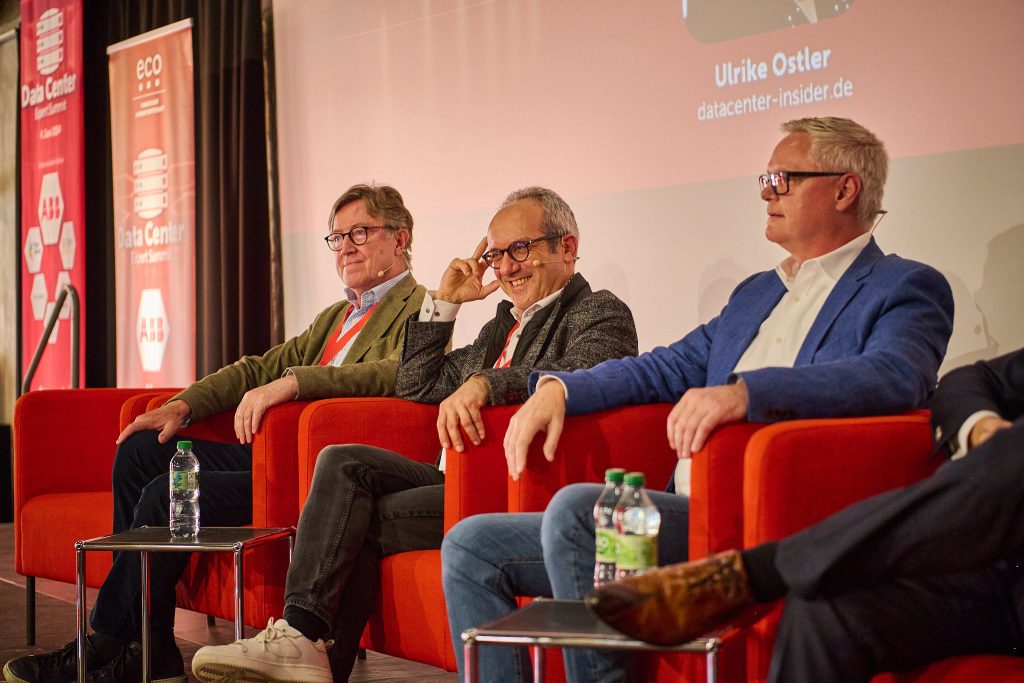
New energy storage technologies for data centres
The discussion on resilient infrastructures continued after the lunch break: “Security is a universal and permanent task. We all need suitable tools to defend ourselves,” said Jens Ahlbrand from Grass-Merkur GmbH & Co. KG. The focus then shifted to energy storage: Donald Badoux from Energieversorgung (energy supply) Offenbach discussed the challenges of decarbonisation and green heat.
“Battery storage systems help to strengthen our electricity grid,” said Dr Béla Waldhauser, Spokesperson for the Alliance for the Strengthening of Digital Infrastructures in Germany, in the following presentation. Maximilian Muennicke from Huawei Germany also confirmed that new energy storage technologies can support the stable operation and availability of data centres, providing examples. Staffan Reveman, Reveman Energy Academy, also stated: “Battery storage systems can play an important role in solving our energy problems.” Dr Béla Waldhauser pointed out our dependence on solar power and wind power. Ulrike Ostler, Editor-in-Chief of Data Centre Insider, added: “Generative AI requires vast amounts of data and continues to increase the demand for electricity.”
At the end of the Data Centre Expert Summit 2024, moderator Roland Broch thanked the participants and noted that the challenges facing the industry are wide-ranged and diverse, requiring improved energy efficiency, finding new locations with sufficient connectivity and power supply and with ever new ways of utilising waste heat. However, the industry’s high level of innovation and many pioneering solution ideas that were presented and discussed at the event showed ways to overcome these challenges.
View all photos here
